
Wool insulation offers a higher R-value than fiberglass but is more expensive. Use this guide to estimate wool insulation costs for your home.
The right basement insulation is key to a comfortable, cozy home all year long


Insulation can help regulate your basement's temperature, potentially saving you money on your monthly energy bills without sacrificing year-round comfort. Insulation also helps soundproof your basement, blocking outside noises for you and preventing your neighbors from hearing what's happening inside your household.
The best insulation for your basement depends on several factors, such as whether you're insulating your basement ceiling or walls. This guide outlines different types of basement insulation to help you choose the right type for your needs.
Understanding insulation R-values can help you choose the best insulation for your basement. R-values indicate how well different insulation types prevent heat from leaving your home, making it a good overall measure of effectiveness. The higher the R-value, the better the insulation keeps heat inside.
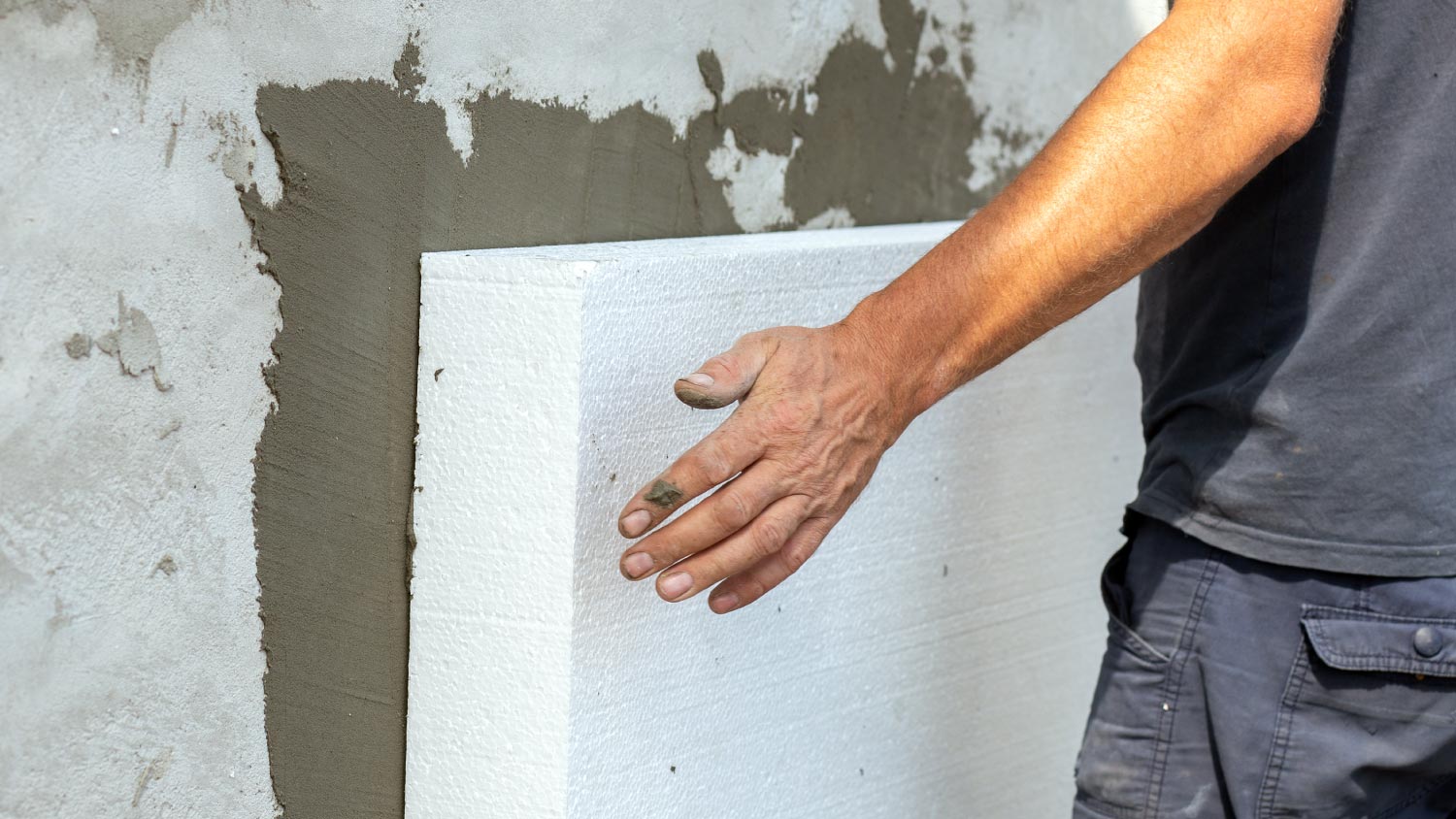
Typical R-value: 3.5–8.0
Foam board insulation comes in rigid sheets made of polystyrene or polyisocyanurate, and you can use it in both basement ceilings and walls. It's relatively inexpensive and easy to install —especially when installed before framing the walls—so it's a great option for DIYers on a budget. Foam board insulation is also low-maintenance and moisture-resistant, which is why it’s basement-approved.
Perfect for walls and ceilings
Moisture-resistant
Low-maintenance
Easy to install
Inexpensive
Air bubbles in polystyrene can accumulate some moisture
Must be very precisely cut to work effectively

Typical R-value: 3.6–3.9
Made of polyurethane, you can spray foam into small crevices, at which point it expands to fill the area completely. Spray foam insulation is ideal for filling remaining ceiling or wall cavities, such as gaps between wall studs. It doesn't retain moisture, so it won't cause mildew or mold, and it has strong sound absorption properties. However, spray foam insulation costs more than other insulation types.
Easily fills small gaps and crevices
Doesn't retain water
Strong sound absorption capabilities
More expensive than other insulation types
Not ideal for insulating large spaces
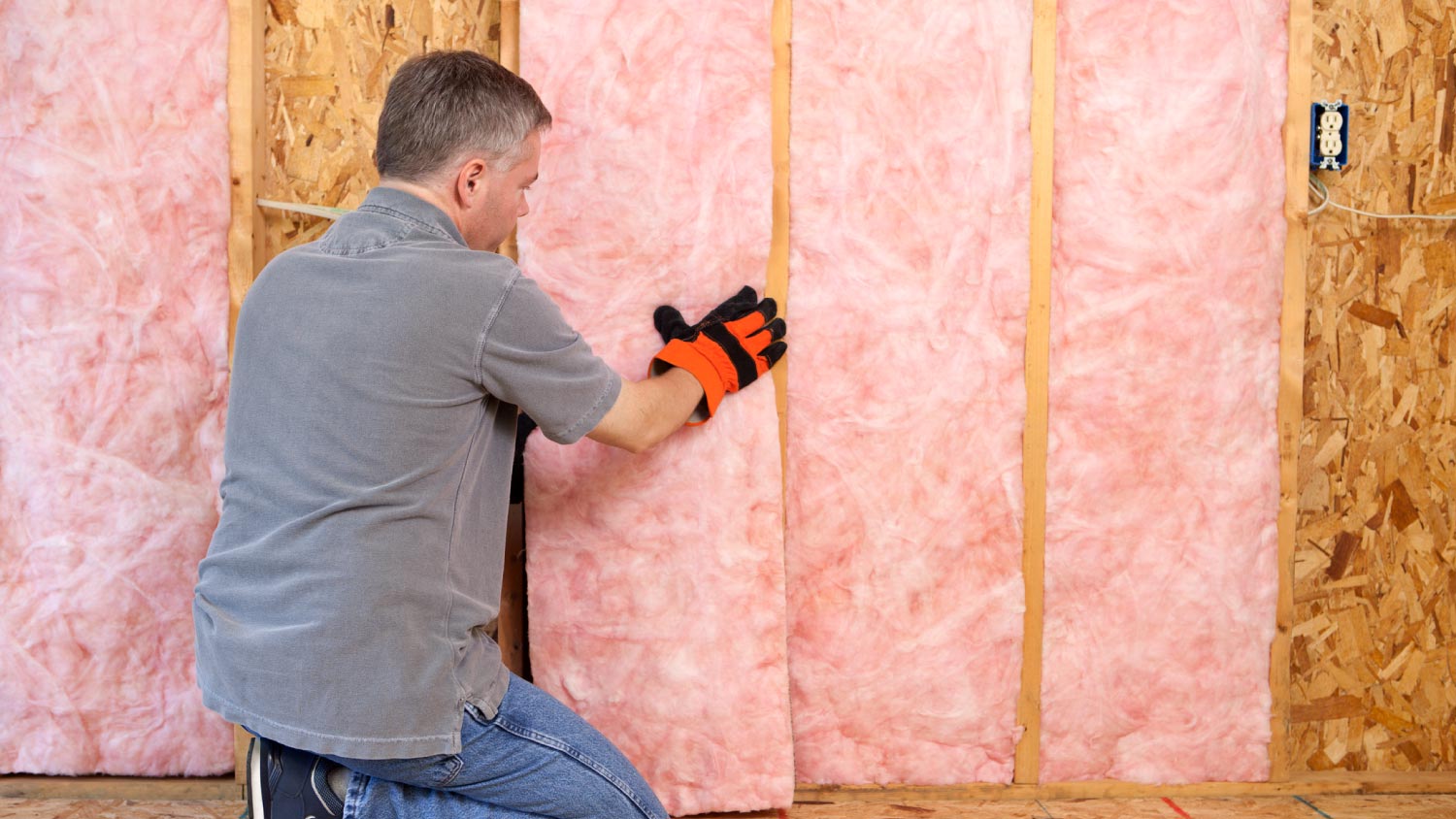
Typical R-value: 3.1–3.4
Fiberglass insulation is made of tiny glass fibers. It helps to regulate interior temperatures and offers strong soundproofing capabilities. However, it's not generally recommended for basement walls because it holds onto moisture, leading to water damage, mold, and mildew. But it can work well for insulating the basement ceiling when the basement isn't prone to moisture.
That said, fiberglass insulation is hazardous to your health if touched or inhaled, so you should always wear proper safety gear if you're handling it.
Excellent soundproofing capabilities
Doesn't retain water
Relatively inexpensive
Hazardous if touched or inhaled
Retains moisture
Not recommended for basement walls

Typical R-values: 3.1–3.4
Mineral wool insulation is a common alternative to fiberglass. It boasts a higher R-value than fiberglass, and it's often made from 30% recyclable materials. It's also moisture-resistant and can slow the spread of fires in the home, so it's ideal for basement walls and ceilings. However, it's typically more expensive than fiberglass.
Good for walls and ceilings
Made with recyclable materials
Higher R-value than fiberglass
Moisture- and fire-resistant
More expensive than fiberglass
Tougher to install than some other insulation types
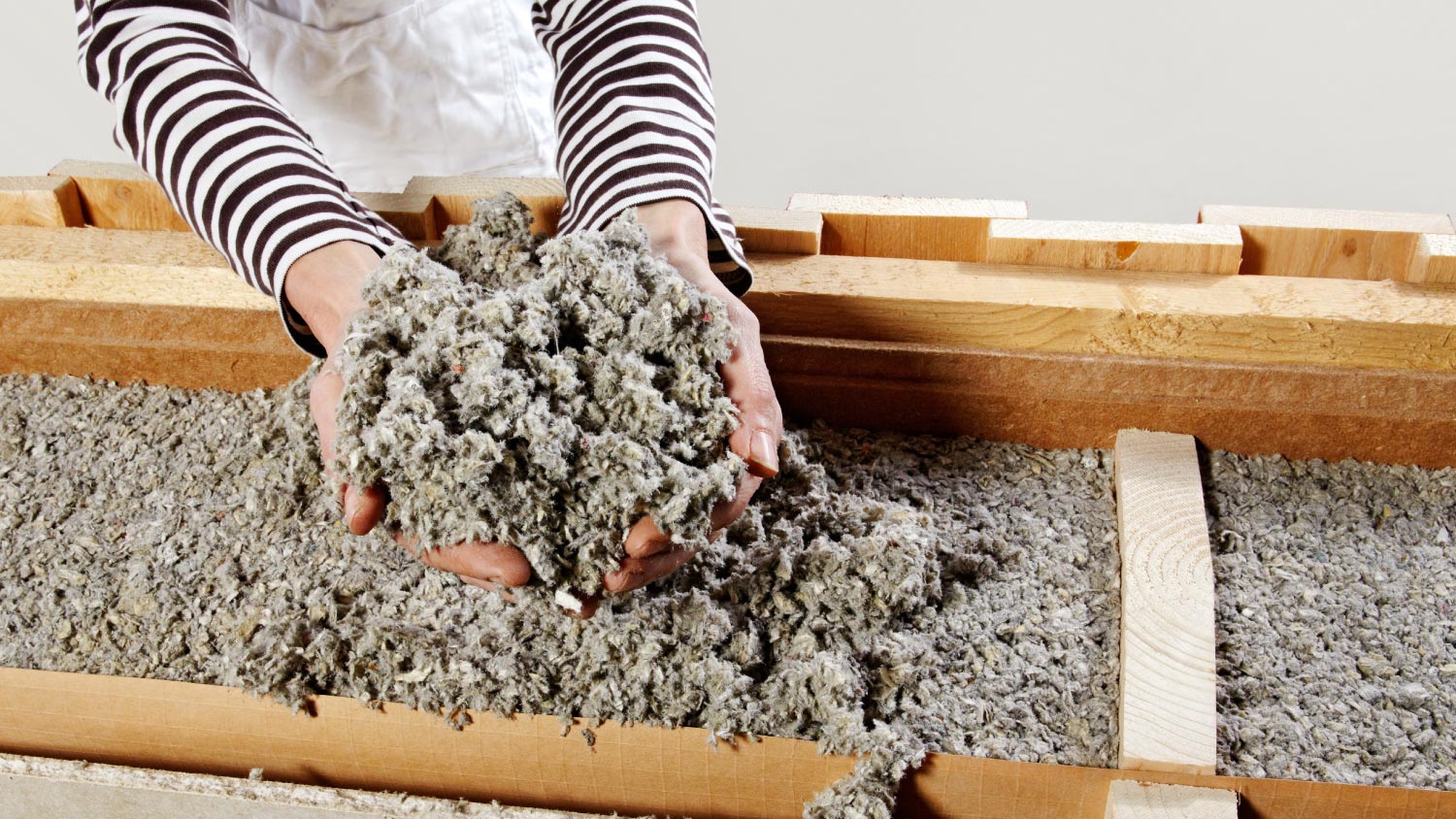
Typical R-values: 3.2–3.8
Cellulose is a thick and dense loose-fill insulation derived from plant sources. It's usually composed of recycled paper and cardboard, making it more eco-friendly than other types. Cellulose is affordable and has a relatively high R-value, but it's not as moisture-resistant as some other insulation types, so it might be a better fit for basement ceilings than walls. It can also pack down over time, creating thermal bridges that move hot and cold air around, reducing its efficacy.
Affordable
Made of the most recycled materials out of all insulation options
Boasts a Class 1 Fire Retardant Rating
Higher R-value than fiberglass
Possible to install yourself
Less moisture-resistant than other insulation types
Might pack down over time, creating air leaks that minimize its efficacy
Not considered the best option for walls
According to Angi data, 25% of homeowners report requesting a bathroom as part of a remodel project, making it the most commonly requested feature in a basement remodel. Other frequently requested features include a bedroom, extra storage, or laundry. All these additions will require insulation, so you’ll want to make sure you plan accordingly to ensure the entire space is comfortable and energy efficient.
Choosing the right type of insulation for your basement will come down to how you’re using the space and your budget. You can narrow down your options by determining whether you plan to finish the basement or not:
Finished: Whether you’re using the space as a game room or adding living space with a bedroom, you’ll want insulation that doubles as soundproofing. Closed-cell spray foam is a good option to insulate both the ceiling and the walls. It’s more expensive than the other options, but it may be worth it if you plan to use this space often.
Unfinished: If you don’t plan to finish the basement, it’s best to choose a more affordable option, such as foam board or faced fiberglass blankets for the walls.
From average costs to expert advice, get all the answers you need to get your job done.

Wool insulation offers a higher R-value than fiberglass but is more expensive. Use this guide to estimate wool insulation costs for your home.
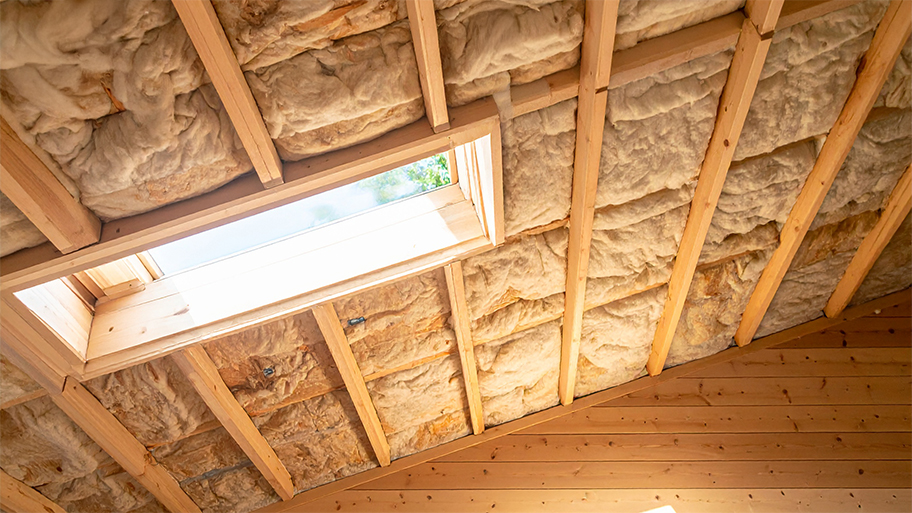
Insulating your attic can massively improve your home’s efficiency and reduce electric bills. Use this guide to find out what attic insulation will cost you.
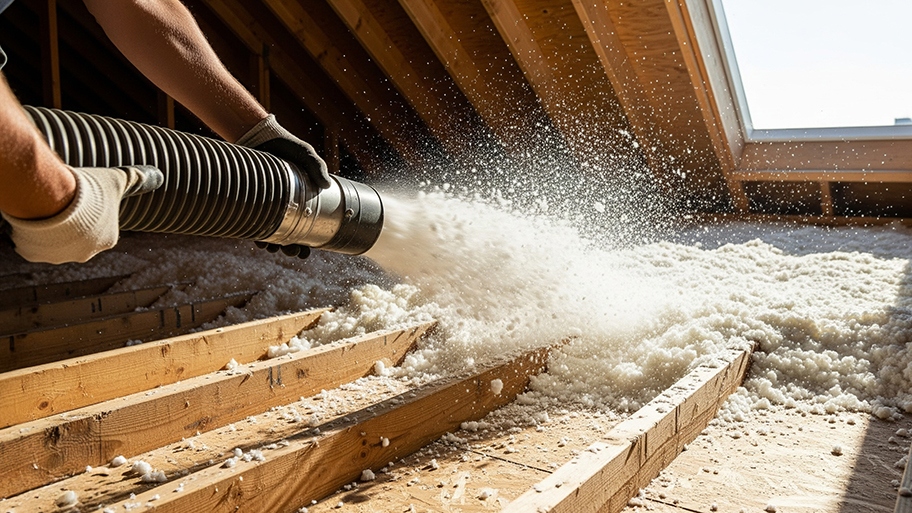
The cost of blown-in insulation costs varies depending on the type of insulation, labor, prep work, and more. Learn more about the cost factors in this guide.

If you are planning to add insulation to your home, you’re likely wondering: what R-value do I need? Our guide explains what you need to know to insulate your home properly.

How much does it cost to insulate a wall? This guide breaks down the associated costs and variables to consider when setting your project budget.

Crawl spaces are more than a small, uninhabitable space beneath your home. Learn how insulating your crawl space can make the area useful.